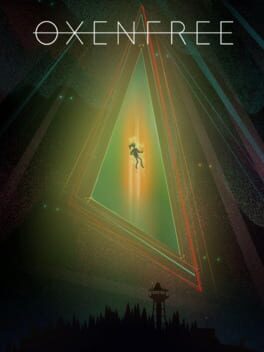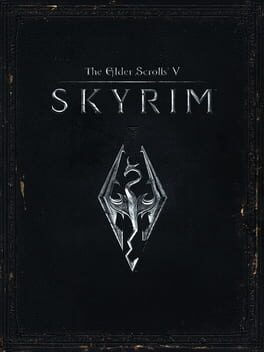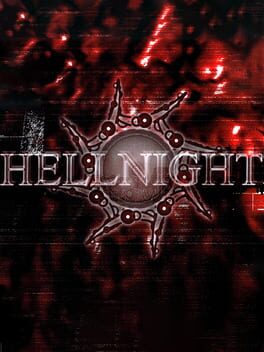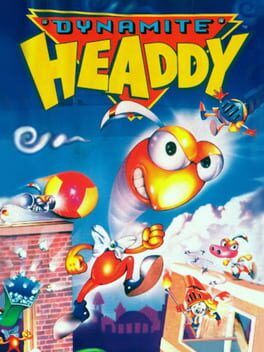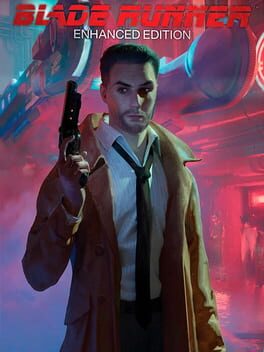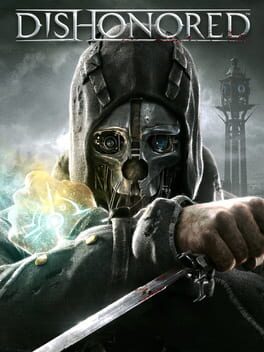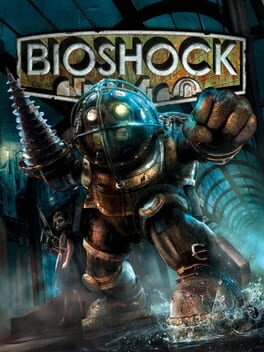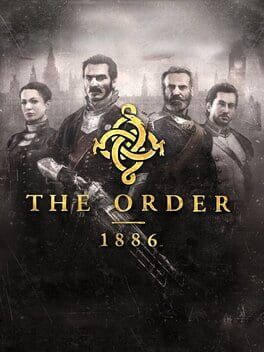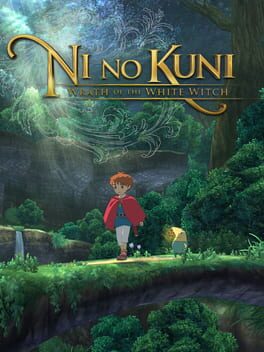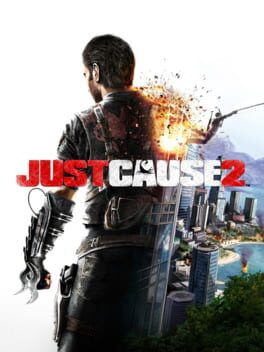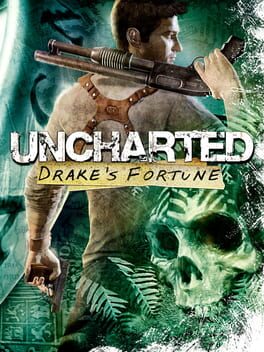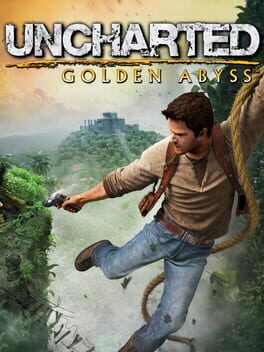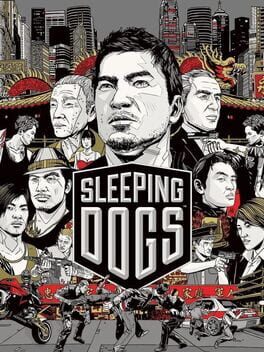Acquiescence
2016
I was among the unfortunate to have bought this bug-ridden trash day one on the PS3. Bethesda sold me a broken product that shouldn't have seen the light of day until it was fixed.
Never did buy a Bethesda game day one after that. And let's face it, you don't have to because they drop in price quicker than a whore's drawers.
Never did buy a Bethesda game day one after that. And let's face it, you don't have to because they drop in price quicker than a whore's drawers.
1998
1994
I played the fan-translated Japanese version of this game. It is vastly superior to what we got in the west. The story segments have been kept in rather than omitted entirely, and the difficulty level hasn't been adjusted in order to make things crushingly hard for the player. It's definitely the way to go.
A very imaginative platformer. Bursting at the seams with ideas and various little details that give it the essence of a demented Japanese kids cartoon. It doesn't always work and sometimes the difficulty, even in the Japanese version, is just too unfair for its own good. But Dynamite Headdy is dangerously close to hidden gem territory. Well worth checking out for any platforming enthusiast.
7.75 outta 10
A very imaginative platformer. Bursting at the seams with ideas and various little details that give it the essence of a demented Japanese kids cartoon. It doesn't always work and sometimes the difficulty, even in the Japanese version, is just too unfair for its own good. But Dynamite Headdy is dangerously close to hidden gem territory. Well worth checking out for any platforming enthusiast.
7.75 outta 10
1998
Before Hideo Kojima started huffing his own farts and grew an ego the size of Nicki Minaj's silicone-riddled arse, there was this absolute gem of a game that, back in 1998, I didn't even think was possible on PS1 hardware. Working within the confines of the console's limited specs was probably the best thing for MGS, because it meant Kojima had to restrain himself. It's still a short game that takes up two discs, but still it meant that he couldn't 'beguile' us with 40 minute exposition dumps and unintentionally funny scenes where a character goes on a random tangent about the time they had an affair with their own stepmom. MGS1 is tightly-paced, revolutionary, and has the least amount of its creator's trademark self-indulgent horseshit.
He'll never make a game this good again.
He'll never make a game this good again.
I've been meaning to play this damned game close to the time it came out, but there was always a reason that prohibited me from doing so. As a kid in 1999, I didn't have a PC close to running it, and I knew nothing about PC gaming back then anyway. And then for a great many years, the game was practically lost to time; non-compatible with Windows after 2000 and thus excruciatingly difficult to run. And then lo and behold, Blade Runner was made available to purchase and play in 2019, thanks to a fan project that strived for years to reverse-engineer the game's complex engine. I made a digital purchase sharpish and then... never played it. Why? I don't rightly know. Maybe it was the weight of expectations. I had waited for the opportunity to experience something I had desired to play for so long, and now that I had the chance, I was too daunted to do so. And so it went into my backlog. And then a remaster was announced. And not just for PC, but all the major consoles no less! I'm much more comfortable playing games on console than PC, and so I waited a few extra months for what I thought would be the definitive version. I bought the Enhanced Edition literally hours after it dropped on the PlayStation Store, with the full intention of playing it in the foreseeable future. That was until reports started coming in about how poor the remaster itself was. Nightdive had apparently done a subpar job of bringing Blade Runner to modern audiences, with butchered updated visuals, rampant bugs and limited overall options provided to the player.
So why did I play it now? Well, Nightdive eventually got around to fixing their remaster. They released a major patch for the PC version and then recently did the same for the console ports. They worked on the remaster to the extent that it is now the best way to play Westwood's Blade Runner, as far as I know anyway. And so I did it! I finally fucking did it. I played through Blade Runner the video game. I reached the end credits. Hell, I even got the platinum. And like a weight off my shoulders, I can now check it off the backlog list.
So was it worth the wait? For the most part... oh yes! As someone who relishes games heavy on atmosphere, Blade Runner has it in spades and then some. It is an incredibly immersive experience that does an impeccable job of replicating the mood of the movie, even better than the sequel did. Way better in fact. Protagonist Ray McCoy's investigation takes place alongside the events of the first film, and Westwood didn't miss a beat in convincing me that this is the same dirty, dystopian Los Angeles that Ridley Scott presented to the world in 1982. The blurry voxel character models aside, it's a game that holds up visually, even on a big 4K television screen. Every location, pre-rendered, deliberately framed and packed with details authentic to the source material, is a pleasure to merely gawp at, let alone interact with. It truly is a wet dream for any aficionado of the first movie, and I imagine playing this in 1997 was mind-blowing.
Gameplay wise, Blade Runner fares less well. As a point-and-click adventure game with emphasis placed on story, dialogue and presentation, systems and mechanics of immense complexity were never going to be its forte. I barely engaged in the gunplay during my playthrough, which is fine because it's as strategically braindead as you can get. Taking down an enemy consists of little more than awkwardly pointing a cursory at someone and hoping you get lucky. There's also very little in the way of actual puzzle solving. The game has an element of randomisation in terms of which characters are replicants and when/where characters will appear, with one of 12 endings to stumble upon by the end. But whatever denouement you get is largely dictated by the amount of clues you pick up along the way rather than using items from your inventory with the environment like a conventional game of the genre. I'm not entirely sure this plays fully to the strengths of inhabit the role of a detective. There's a lot of picking things up, but not much figuring things out.
Still, while the randomization sometimes gets in the way of having a sturdier narrative, the story largely delivers on the neo-noir front. McCoy makes for an engaging main character, one who's actually more likeable and understanding than his movie counterpart (depending on what decisions you make I suppose), and seeing him exchange barbs with the colourful cast or muse on the time he once had a real egg that tasted like "liquid sunshine" does a lot to endear the player to him. The tension scales up nicely in the last couple of chapters, and despite an unfortunately rushed last act, I was engaged from beginning to end.
So yeah, worth the wait. It's unfortunate that Westwood never got the opportunity to make a sequel, and doubly unfortunate that they folded under the ownership of EA. There's a lot of adventure games out there, but not one quite like this. If you have even the slightest bit of fandom for the Blade Runner IP, then I strongly recommend you try this game out if you haven't yet. What the hell are you waiting for?!
(More of an 8.75 than a 9)
So why did I play it now? Well, Nightdive eventually got around to fixing their remaster. They released a major patch for the PC version and then recently did the same for the console ports. They worked on the remaster to the extent that it is now the best way to play Westwood's Blade Runner, as far as I know anyway. And so I did it! I finally fucking did it. I played through Blade Runner the video game. I reached the end credits. Hell, I even got the platinum. And like a weight off my shoulders, I can now check it off the backlog list.
So was it worth the wait? For the most part... oh yes! As someone who relishes games heavy on atmosphere, Blade Runner has it in spades and then some. It is an incredibly immersive experience that does an impeccable job of replicating the mood of the movie, even better than the sequel did. Way better in fact. Protagonist Ray McCoy's investigation takes place alongside the events of the first film, and Westwood didn't miss a beat in convincing me that this is the same dirty, dystopian Los Angeles that Ridley Scott presented to the world in 1982. The blurry voxel character models aside, it's a game that holds up visually, even on a big 4K television screen. Every location, pre-rendered, deliberately framed and packed with details authentic to the source material, is a pleasure to merely gawp at, let alone interact with. It truly is a wet dream for any aficionado of the first movie, and I imagine playing this in 1997 was mind-blowing.
Gameplay wise, Blade Runner fares less well. As a point-and-click adventure game with emphasis placed on story, dialogue and presentation, systems and mechanics of immense complexity were never going to be its forte. I barely engaged in the gunplay during my playthrough, which is fine because it's as strategically braindead as you can get. Taking down an enemy consists of little more than awkwardly pointing a cursory at someone and hoping you get lucky. There's also very little in the way of actual puzzle solving. The game has an element of randomisation in terms of which characters are replicants and when/where characters will appear, with one of 12 endings to stumble upon by the end. But whatever denouement you get is largely dictated by the amount of clues you pick up along the way rather than using items from your inventory with the environment like a conventional game of the genre. I'm not entirely sure this plays fully to the strengths of inhabit the role of a detective. There's a lot of picking things up, but not much figuring things out.
Still, while the randomization sometimes gets in the way of having a sturdier narrative, the story largely delivers on the neo-noir front. McCoy makes for an engaging main character, one who's actually more likeable and understanding than his movie counterpart (depending on what decisions you make I suppose), and seeing him exchange barbs with the colourful cast or muse on the time he once had a real egg that tasted like "liquid sunshine" does a lot to endear the player to him. The tension scales up nicely in the last couple of chapters, and despite an unfortunately rushed last act, I was engaged from beginning to end.
So yeah, worth the wait. It's unfortunate that Westwood never got the opportunity to make a sequel, and doubly unfortunate that they folded under the ownership of EA. There's a lot of adventure games out there, but not one quite like this. If you have even the slightest bit of fandom for the Blade Runner IP, then I strongly recommend you try this game out if you haven't yet. What the hell are you waiting for?!
(More of an 8.75 than a 9)
2012
The open-ended nature at which you could approach your mission and deal with your targets was great. The uninspired story, lifeless cast and dreary setting of Dunwall however was not. I know this is a city ravaged by plague and decay, but geez, at least give it a little glitz! Dunwall makes Victorian London look like Disneyworld for crying out loud.
2007
This was one of the very first HD games I ever played. I was ready to be bedazzled by it after the absolute avalanche of attention and adulation it received upon release. Was that praise warranted? Eh.
The combat is essentially brainless, the number of differing enemy types is slim at best, and the game peaks with the reveal of its twist. It's all massively downhill after that, which is unfortunate as the game goes on for another laborious three hours. Suffice to say, I never got the acclaim for this one. There are some compelling ideas and story moments, and Rapture itself can be an intriguing place to trawl through (although it would've been a whole lot more interesting to explore back when it was a functioning society), but poor pacing and shallow gameplay holds it back for me. Also, I'm pretty sure this was the game that cemented my hate for audio logs.
The combat is essentially brainless, the number of differing enemy types is slim at best, and the game peaks with the reveal of its twist. It's all massively downhill after that, which is unfortunate as the game goes on for another laborious three hours. Suffice to say, I never got the acclaim for this one. There are some compelling ideas and story moments, and Rapture itself can be an intriguing place to trawl through (although it would've been a whole lot more interesting to explore back when it was a functioning society), but poor pacing and shallow gameplay holds it back for me. Also, I'm pretty sure this was the game that cemented my hate for audio logs.
2015
Still a stunning graphical showcase for the PS4 (even though I suppose it cheated a little with the aspect ratio and black bars covering up 40% of the screen). This game looks gorgeous, and Ready at Dawn did a commendable job of creating an alternative Victorian-era world brimming with detail and atmosphere.
But yes, The Order has some major shortcomings, and everyone knows what they are because it's been talked about to death, so I won't go into detail about the negatives. What I will say is that, despite my ultimate disappointment with the game, I do truly feel like there was potential for something greater that could've been realised in a sequel. The game's narrative finally picks up steam in the last hour or so, and the climactic gunfight is a pleasingly chaotic one. But it was all too little too late, and the discourse around this game was so toxic come release day that there isn't a hope in hell of a follow-up ever happening.
But yes, The Order has some major shortcomings, and everyone knows what they are because it's been talked about to death, so I won't go into detail about the negatives. What I will say is that, despite my ultimate disappointment with the game, I do truly feel like there was potential for something greater that could've been realised in a sequel. The game's narrative finally picks up steam in the last hour or so, and the climactic gunfight is a pleasingly chaotic one. But it was all too little too late, and the discourse around this game was so toxic come release day that there isn't a hope in hell of a follow-up ever happening.
2013
The following was written by me for a GOTY voting thread back in 2013...
Whereas I couldn't help but feel that the first Bioshock was undeserving of the adoration heaped onto it - chalk that up to brainless combat, an alarmingly slim variation of enemy types and a narrative that drags as soon as the twist is revealed - Bioshock Infinite is a successor worthy of the critical acclaim bestowed upon it. Booker DeWitt and Elizabeth are a far more engaging pair of leads than the disembodied arms you played as before, exploring the floating city of Columbia is more wondrous and awe-inspiring than the decrepit remains of Rapture, and the combat is enhanced substantially, with juggling between stock gun-play and the supernatural vigor powers allowing for a more flexible and strategic approach than before. A brave and ambitious direction for a series that could have easily phoned it in with more of the same.
Whereas I couldn't help but feel that the first Bioshock was undeserving of the adoration heaped onto it - chalk that up to brainless combat, an alarmingly slim variation of enemy types and a narrative that drags as soon as the twist is revealed - Bioshock Infinite is a successor worthy of the critical acclaim bestowed upon it. Booker DeWitt and Elizabeth are a far more engaging pair of leads than the disembodied arms you played as before, exploring the floating city of Columbia is more wondrous and awe-inspiring than the decrepit remains of Rapture, and the combat is enhanced substantially, with juggling between stock gun-play and the supernatural vigor powers allowing for a more flexible and strategic approach than before. A brave and ambitious direction for a series that could have easily phoned it in with more of the same.
The following was written by me for a GOTY voting thread back in 2013...
Proof that a JRPG with a sizeable budget can make the transition to high-definition without being stripped of the known hallmarks that make it what it is. Towns! An overworld! Non-linearity! Ni no Kuni plays in a dependable, familiar fashion, but comes equipped with dazzling cel-shaded graphics, Joe Hisaishi's quintessential orchestration and the novelty of playing an interactive Studio Ghibli film, all of which rises it above the competition in its respective genre. Magical, heart-warming stuff.
Proof that a JRPG with a sizeable budget can make the transition to high-definition without being stripped of the known hallmarks that make it what it is. Towns! An overworld! Non-linearity! Ni no Kuni plays in a dependable, familiar fashion, but comes equipped with dazzling cel-shaded graphics, Joe Hisaishi's quintessential orchestration and the novelty of playing an interactive Studio Ghibli film, all of which rises it above the competition in its respective genre. Magical, heart-warming stuff.
2010
Going for the platinum in Just Cause 2 really does expose the game as the colossal piece of shit game it is. Yeah you've got a huge sandbox to explore and cause carnage in, but what a shame that after about three or four hours, you've seen practically everything that huge sandbox has to offer. Want the platinum? Prepare to do the same shit over and over again ad nauseam for 50+ hours. And that hijacking-the-helicopter QTE can go straight to hell.
Open world tedium personified.
Open world tedium personified.
Humble beginnings and all that. The first Uncharted was a showcase for the PS3 and what Sony's first HD box was capable of early on in its lifecycle. Revisiting it now, it's almost funny how basic Nate's first romp is in nearly every aspect. The sequels later built upon, fine-tuned and ultimately delivered what was needed for a video game to replicate a Hollywood summer blockbuster, but Drake's Fortune is very much a foundation for greater things. What's here is reliable but never spectacular. That would come later.
The following was written by me for a GOTY voting thread back in 2012...
Uncharted 2 was partly the reason I bought a PS3. Golden Abyss is partly the reason I purchased a Vita. This, apparently, is a good trend to follow, so bring on Uncharted 4 for Sony's next console I say. Not quite the Hollywood blockbuster action of its home console ilk, Golden Abyss sets aside the elaborate set-pieces for something a little more grounded and restrained. There's no grand set-piece during its campaign to leave the mouth agape like escaping the confines a capsizing cruise liner, but the fact that an Uncharted game is even on a handheld device, and one that successfully replicates the formula at that, is hugely commendable. Nate and Sully remain as endearing as ever, Chase outdoes Elena in the love interest stakes and the gyroscope-enhanced aiming is perfect for fine-tuning those all too important headshots.
Uncharted 2 was partly the reason I bought a PS3. Golden Abyss is partly the reason I purchased a Vita. This, apparently, is a good trend to follow, so bring on Uncharted 4 for Sony's next console I say. Not quite the Hollywood blockbuster action of its home console ilk, Golden Abyss sets aside the elaborate set-pieces for something a little more grounded and restrained. There's no grand set-piece during its campaign to leave the mouth agape like escaping the confines a capsizing cruise liner, but the fact that an Uncharted game is even on a handheld device, and one that successfully replicates the formula at that, is hugely commendable. Nate and Sully remain as endearing as ever, Chase outdoes Elena in the love interest stakes and the gyroscope-enhanced aiming is perfect for fine-tuning those all too important headshots.
2012
The following was written by me for a GOTY voting thread back in 2012...
In my experience, sandbox games usually sacrifice atmosphere and detail for abundant scale and empty, lifeless environments (hello Just Cause 2). Not Sleeping Dogs however, and that's what I loved about it. It doesn't feature the biggest world to roam around in, but what's here is chock full of detail and ambiance, with its setting really feeling like a living, breathing and (somewhat) accurate depiction of Hong Kong. A melting pot of influences that range from Infernal Affairs to Grand Theft Auto to the Batman Arkham games, Sleeping Dogs is derivative for sure, but pulls off its multitude of differing gameplay mechanics sufficiently. It's packed with content and a wide variety of things to do, and straddles a fine line between the realistic and the absurd, keeping the tone consistent throughout and avoiding the pitfalls of GTA IV. Hell, even some of the hacking mini-games are fun.
At best, it represents the most unexpected delight of the year. And at the very least, it acts as an extension of the middle finger to Bobby Kotick and the rest of the spawn of Satan over at Activision who axed such a great game in the making.
In my experience, sandbox games usually sacrifice atmosphere and detail for abundant scale and empty, lifeless environments (hello Just Cause 2). Not Sleeping Dogs however, and that's what I loved about it. It doesn't feature the biggest world to roam around in, but what's here is chock full of detail and ambiance, with its setting really feeling like a living, breathing and (somewhat) accurate depiction of Hong Kong. A melting pot of influences that range from Infernal Affairs to Grand Theft Auto to the Batman Arkham games, Sleeping Dogs is derivative for sure, but pulls off its multitude of differing gameplay mechanics sufficiently. It's packed with content and a wide variety of things to do, and straddles a fine line between the realistic and the absurd, keeping the tone consistent throughout and avoiding the pitfalls of GTA IV. Hell, even some of the hacking mini-games are fun.
At best, it represents the most unexpected delight of the year. And at the very least, it acts as an extension of the middle finger to Bobby Kotick and the rest of the spawn of Satan over at Activision who axed such a great game in the making.
